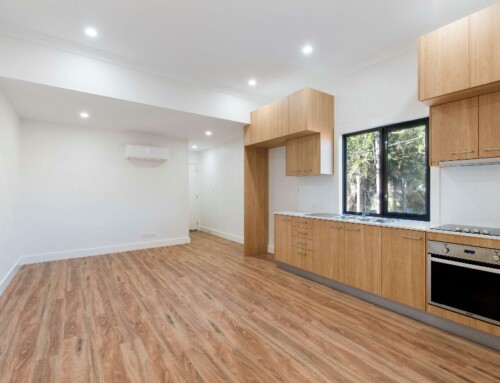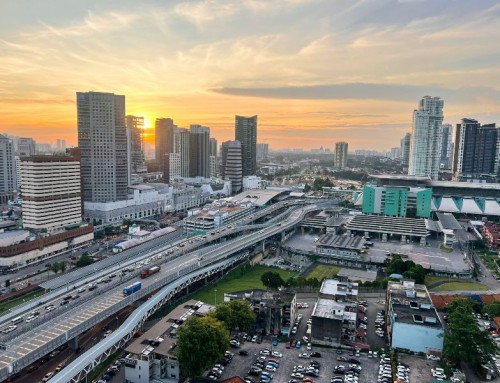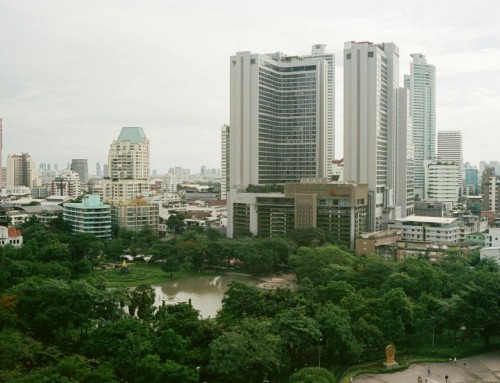“When you combine leverage and ignorance, you get some pretty interesting results” – Warren Buffet
Leverage is something that should be considered in any form of investment, especially when it comes to investing in real estate. The sheer fact that the Singapore property market is extremely tepid is due to the fact that it is difficult to obtain leverage for local properties. Let’s take a look at 2 case scenarios
Scenario 1
Property Price: $200,000
No leverage
Cash outlay: $200,000
Property price increases by 20% to $220,000
Profit: $20,000
Return on investment 20%
Scenario 2
Property Price: $1,000,000
80% leverage
Cash outlay: $200,000
Property price increases by 20% to $1,200,000
Profit: $200,000
Return on investment: 100%
Negating all other transaction cost, we have a simple illustration of how for the same amount of money, leverage can help an investor achieve a larger return on investment. To get a 100% return on your investment, with leverage, you do not need to put down a 100% of the price of the property.
Let’s then take into account why people purchase real estate. There are two reasons. For owner occupation or as a form of investment. These two reasons are not mutually exclusive and can overlap. Let’s then take into account the two reasons why people purchase real estate as a form of investment. They do so to collect a yield via renting out the property or they do so for capital appreciation. The last example clearly shows how leverage can help an investor gain better returns when he sells his property to realize the appreciated value of his property. Now let’s take a look at how leverage will aid a property investor with yields on the amount of money invested.
Scenario 1
Property Price: $1,000,000
No leverage
Cash outlay: $1,000,000
Rental per annum: $40,000
Yield on capital invested: 4% per annum
Scenario 2
Property Price: $1,000,000
80% leverage
Cash outlay: $200,000
Rental per annum: $40,000
Yield on capital invested: 20% per annum
This then shows us how a property investment that is focus on collecting yield from rent can be aided by leverage.
So then what is the flip side of leverage? Why is Warren Buffet associating leverage and ignorance with something horrible? The main problem with leverage is that with leverage the investor is borrowing money to finance the investment. In short the investor does not have the money to pay the property in full or even if he does, he may want to buy multiple properties instead of just one to get larger returns. If the property market goes well then the investor would have made a killing. However, property as an asset class is much more illiquid as compared to things like stocks and bonds. If the market were to turn in an economy as open as Singapore, then demand for real estate as an asset class would fall. If the investor wants to sell or rent his property and he has little or no interested parties, he would have to still service the debt that he borrowed to make the investment. Also, if the value of the property were to fall below the amount that the investor owes to the lender, the lender may then require the investor to make good the difference on the property. If there is a failure to make good on installments to the loan the property may be foreclosed. This is what happened in the US during the recent financial crisis in 2008 and 2009 and to a large extent property foreclosures are still happening to this very day.
So how do we ensure that we do not mix ignorance with leverage in a property investment?
1) Buy property when the prices are low.
I know this is easier said than done but at times it can be written in stone that a certain property investment is a poor one and yet we have people rushing in for it. Once property prices have been rising for some time, developers start to get aggressive and bid for land at record prices. They then have to set new benchmarks in terms of pricing when the new project is launched. This then translates to the investor buying at record prices. If you are buying at let’s say 20% above market price, when you factor in transaction and maintenance cost, what price would you have to sell the property for just to break even before even talking about making a profit?
2) Buy property in locations whereby there will always be a demand.
The mantra of buying property in prime location should never be forgotten. When you look at real estate in prime areas, demand from the local population as well as foreigners will always be there. When foreigners talk about investing in Singapore they will know that properties located in and around Orchard Road are prime properties. Also, when properties are located in prime, central location, tenants can always be found. When the rental market is weak, lowering the rent can attract tenants to the property. Accepting a lower yield on the property is way better than accepting no yield. When large developments (in my opinion developments of 400 or more units are large) are developed in the outskirts like Punggol or Pasir Ris, the demand for such properties are most probably going to come from the people working in and around that area. However, there are way more companies and businesses in and around the city centre of Singapore and thus the tenant pool will be much larger in the core central region of Singapore.
3) Always have spare monies to prepare for an emergency.
Many people max out their bank accounts and are left with little or no savings once they purchase a property. At times they do this to be able to buy multiple investment properties. One must always remember that the market can turn at any time, jobs can be lost, businesses can fail but lenders such as banks will still function and collect installment. The rule of thumb is to always have at least six months of your house installment in your savings as a buffer in case of an emergency. If your housing installment is $3,000 per month, it would be prudent to have $18,000 stashed away in a bank account untouched.
So then why did the Singapore government restrict leverage with the Total Debt Servicing Ratio (TDSR)? I believe that they can foresee that many Singaporeans may fail to make good on the installment of their properties. Investors were getting too exuberant in paying prices over and above what is sensible. This tightening of leverage conditions slowed the market down greatly. From this we can see what a useful tool leverage is in controlling property prices.
So how then should we view leverage? It is a tool to aid us in making an investment but it should also aid us in deciding what markets to invest in. When investing in properties around the globe, it is important to take note that markets with leverage will usually have a larger pool of buyers and thus have greater demand. When making an investment, consider leverage not only for yourself but also for the person whom you are going to make money off. If you do sell your property off to someone for a sizable profit, is the next buyer going to be able to get leverage to take the property off you? Not everyone requires leverage but many people do and selling a property off to someone without the ability to obtain leverage is much harder than selling off something with the ability to obtain leverage. This should be at the back of investors’ minds when they make a foray into untested property markets where leverage is not available.
Let me add on to what Warren Buffet had to say about leverage with my own personal quote.
“Leverage is a friend to the wise and an enemy of the ignorant.”
Yours Sincerely,
Daryl Lum








